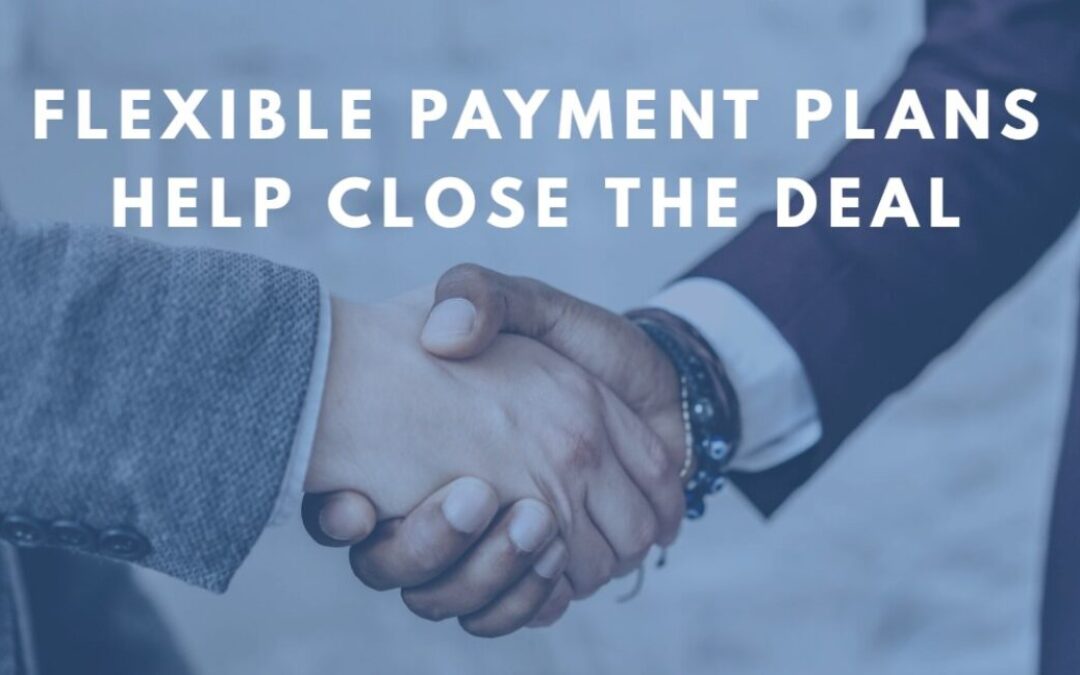Each year, different trends and circumstances influence business for sale transactions. For example, in some years it is supply and demand. It might be new technologies or the overall health of the economy. Since the onset of COVID-19, one trend that has been affecting transactions is fear of investing in a business during uncertain times. There are many buyers ready for business ownership that are hesitant to take the plunge when the effects of the pandemic are still being felt throughout many industry sectors.
Traditionally, a business is considered sold and ownership is transferred after the seller is paid in full. Today many buyers are not willing to make a lump sum payment to finalize the transaction. To achieve their asking price, sellers have to be flexible and creative in their terms concerning payment and closing. Two methods sellers have been using to close deals are earnouts and vendor financing.
Earnouts
Earnouts are a flexible option where terms and conditions are unique to each circumstance. In an earnout agreement, the buyer agrees on a purchase price and commits to additional compensation to the seller if pre-determined criteria and performance targets are met. This type of deal is a good option when a business for sale has recently experienced a period of exceptional profits as well as when a business has entered a new market or has new offerings.
Earnouts help to eliminate some of the uncertainty buyers are feeling. The structure shows that the seller believes strongly in the future success of the business. It also reduces the financial burden on the new owner. Most importantly, earnouts motivate the buyer and seller to work together to help the business reach peak performance before, during, and after the sale is completed.
Vendor financing
Vendor financing is a second option that encourages buyers to make an offer. It is no secret that it can be difficult to obtain financing to buy a business. While there are some alternatives to traditional financing options, these can be extremely expensive. Some business owners may be able to offer financing, also known as a vendor take back. In this type of deal, the buyer agrees to pay the seller a percentage of the sale price over an agreed-upon period. The payments include interest and the rate can be negotiated between the buyer and the seller. It offers an added layer of protection for buyers because they can easily recover costs that were not properly disclosed before the sale was finalized. This structure keeps the owner engaged throughout the transition period which can be very beneficial for the buyer as they learn the ropes. I recently closed a deal using vendor financing over three years at an interest rate of prime plus 1%. Both parties were pleased with the terms of the agreement and that helped to propel the transaction over the finish line.
Protection for all parties
When considering a deal using earnouts or vendor financing, due diligence is still extremely important. My top three recommendations to anyone entering into an earnout or vendor financing agreement are as follows:
- Document everything in writing, including the terms of the deal and all relevant accounting assumptions;
- Have the deal drafted and reviewed by experts, including a business broker, accountant, and lawyer experienced in handling business for sale transactions; and
- Be sure the agreement includes a dispute resolution process.
One certainty that impacts all business for sale transactions is that no one knows what the future holds. When we are open to alternative financing arrangements like earnouts and vendor financing, we can overcome buyer hesitancy and structure transactions where everyone walks away a winner. If you would like to talk about buying or selling a business using either of these strategies, please reach out and book a time to chat!

